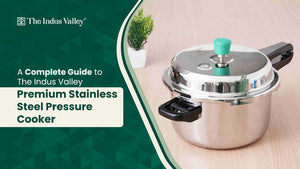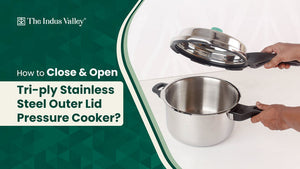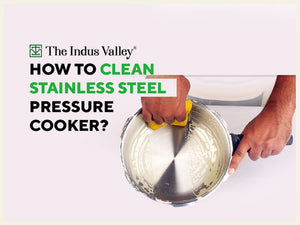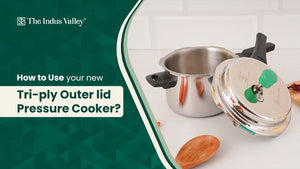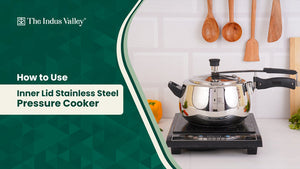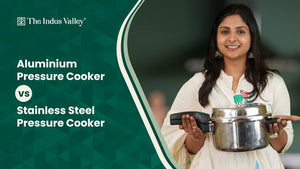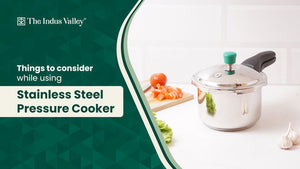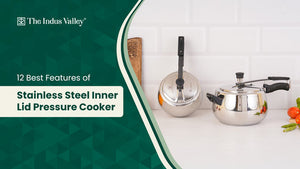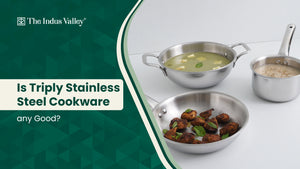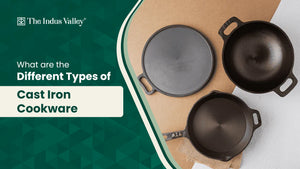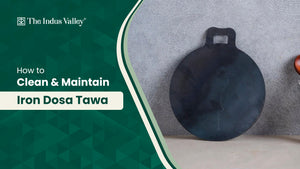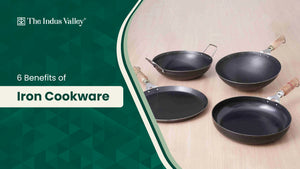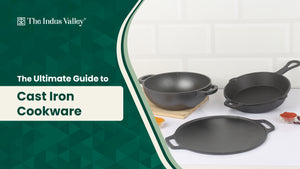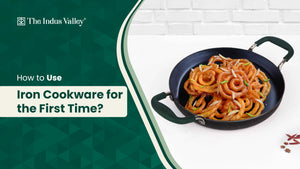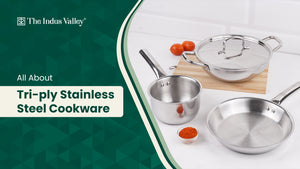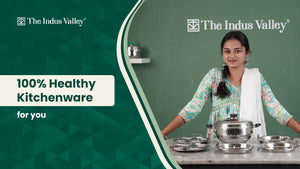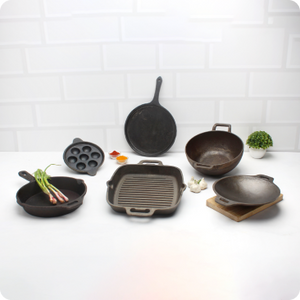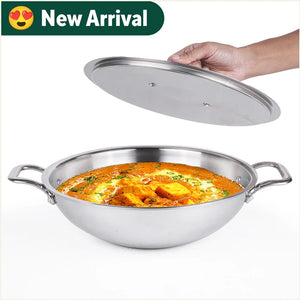Thinking of buying a new pan that suits your induction cooktop? Considered choosing a cast iron pan? If not, then we highly recommend an induction pan in cast iron, over a non-stick pan.
Why?
Read further to understand how cast iron is the best choice for an induction pan… But before that, find out what is special about an induction cooktop.
Benefits of Induction Cooktop
Induction cooktops are becoming a vogue these days, as more and more kitchens get upgraded to suit urban lifestyle. They are sleek, efficient and convenient.
Thanks to high-end technology, the induction stove is found to be really useful and relatively better than the traditional gas stove or electric stove.
With induction cooktops being received with open arms by modern families, there has been an increasing demand for induction utensils. Those who are ardent users of cast iron cookware, the induction stove will prove to be more beneficial - as together they will help in efficient cooking.
Considering these factors, one can now understand why induction cookware is earning popularity these days.
So can i use cast iron cookware on an induction stove?
Of course, an induction stove or cooktop is compatible with cast iron cookware. And trust us, when we say that together, an induction cooktop and cast iron cookware are a wonderful cooking combo.
Although there are minor hiccups involved (that are ignorable), in the long run these two are great for providing an enhanced cooking experience.
Having said that, let’s move on to focus on the positive angles. To put it plain, cast iron cookware works quite fine on induction stoves.
For the uninitiated ones; an induction stove has an electromagnetic field below the glass layer on top. This field transfers energy directly to the pan or any suitable vessel placed on the stove, instead of passing the energy through an electric coil.
If it is in cast iron, then how induction cookware works?
As cast iron is obviously made of iron, it draws the electromagnetic current as well as retains heat very well. That is how cast iron cookware works fine on an induction stove.
So no matter whether you are using an induction pan or any type of induction cookware in cast iron, it is guaranteed to give you desired and excellent cooking results. With this, be assured that you can safely use cast iron utensils on the induction cooktops.
Good news about induction cooktop is that it cooks food relatively faster than the commonly-used cooking modes such as gas burner or electric stove. Again, the reason being that the energy is transferred to the source in a more efficient manner.
Cast iron cookware comes under conductive metals and thus, it welcomes electromagnetic current more easily than aluminium, wood, glass, copper or ceramic products. Well, now you know what cookware does not work on induction.
Will my cast iron pan scratch induction cooktop?
Earlier it was hinted that cast iron has a few drawbacks. But as they say, nothing is perfect. Every cooking ware or stove has both plus and minus.
Coming to cast iron cookware and induction cooktop relationship, one needs to give extra love and care for them to go together hand in hand forever. (Hmm, who doesn't like some special attention?)
Once you know how to deal with these two harmoniously, rest will fall in place and you will have a smooth and easy cooking experience. There are several myths that revolve around the association of induction stove and cast iron utensils. And here we are to brush up all those apprehensions and share with you the actual facts...
4 Myths about Using Cast Iron on Induction Cooktop
#1 Weight Factor: Agreed that cast iron cookware is quite heavy, when compared to the lightweight, non-stick cookware. One might be doubtful about placing such a traditional, heavy-duty cast iron utensil on the delicate-looking, modern induction. The obvious solution is to be really, really careful in placing your cast iron pan or any such cookware on the induction stove. You definitely need to be extra cautious and gentle in putting down the vessel - as simple as that.
#2 Being Scratched: The fear of the glossy, smooth surface of the induction cooktop getting scratched is understandable. One would be worried about watching their costly cooking equipment getting damaged by a rough-tough cast iron product.
Again, the answer lies in the way you handle things. Instead of sliding the cast iron pan or tawa on the induction stove, place it firmly and gently in one swift move, right on the heating field. Avoid moving the pan once you start cooking and thus, you can avoid the scratches on the cooktop as well.
#3 Hotspots: Cast iron is a poor conductor of heat; meaning it takes time to get heated up. Say, when you keep that cast iron pan on the induction stove, the centre portion of the utensil heats up first than its edges. On the other hand, the cast iron cooking ware retains heat once it is well-heated and cools down slowly.
So you need to be careful while holding the handles at this point. Furthermore, if the cookware is heated quickly on a high-temperature setting, it would develop hotspots; which is a drawback. This can be avoided by heating the utensil slowly, using a medium heat setting. Having said that, you must always take necessary precautions when handling hot items to prevent burns and food spill.
#4 Temperature: If your food needs constant change in temperature, then avoid cooking it in cast iron. As said earlier, cast iron is a bad conductor of heat. Cast iron cookware is ideally suitable for slow cooking. If so, can induction cookware be used on gas? Yes, in such cases you can opt for alternatives such as gas or electric stove.
How To Use Cast Iron on Induction Cooktop More Efficiently?
Here are a few tips for utilising your cast iron pan or relevant utensil in a better way on the induction stove.
If you are quite particular about protecting your sleek induction cooktop, then use a paper towel (kitchen tissue paper) to place between the cast iron vessel and the induction stove.
Don’t worry, this is super safe. There is no danger in doing this; for, the paper towel won’t catch fire. This will only prevent unnecessary scratches on the cooktop. The paper towel won’t hinder the electromagnetic current and at the same time, allow the induction to transfer heat to the pan. Since it is hard to believe, this hack is not known by many.
Cast iron vessels are long-lasting and ideal for slow cooking. More importantly, you have to be aware that cast iron cookware needs to be cleaned and seasoned properly to improve its quality and give you a lifetime of satisfying cooking results.
Things To Consider Before Buying Cast Iron Cookware for Induction Stove
If you are satisfied with the idea of using induction utensils in cast iron so far and thinking beyond buying an induction pan, then well and good! There is a huge variety of options available in the market now - induction oven, skillet, grill pan, induction cooker and induction tawa, to name a few.
Understandably it might confuse one as to how to identify induction cookware or which induction cookware is the best. So before you buy any induction cookware, there are a few things you need to consider. Such as:
2. Is its surface smooth?
3. Is induction cookware magnetic? (For this, check whether the cookware attracts any fridge magnet. If yes, then the utensil is induction friendly)
4. Can induction cookware be used on an electric stove or a regular gas stove?
5. Is it comfortable to handle?
6. Will its size fit on your induction cooktop?
7. Is induction cookware oven safe?
8. Does it fall within your budget?
By considering these points, you would have a fair idea about what kind of cookware will suit your induction cooktop and your daily cooking requirement.
Where To Buy Induction Cookware In Cast Iron
We get it that you would have excitedly googled “induction cookware near me”. It is advisable to first do basic research and then choose a reputed brand that will provide you reliable induction utensils.
On another note, you can browse through The Indus Valley website and choose from a wide range of induction utensils in cast iron besides other types of toxin-free kitchenware.
Happy & Safe Cooking!
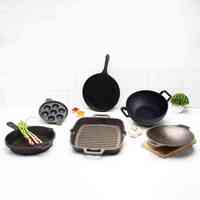
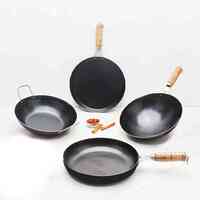
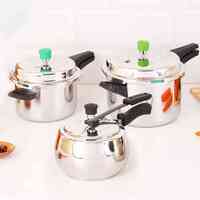
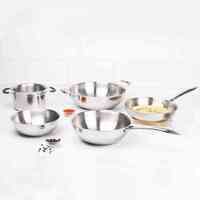
 Easy 7-Day Return
Easy 7-Day Return
 Additional ₹100 Off on Prepaid Orders*
Additional ₹100 Off on Prepaid Orders*

